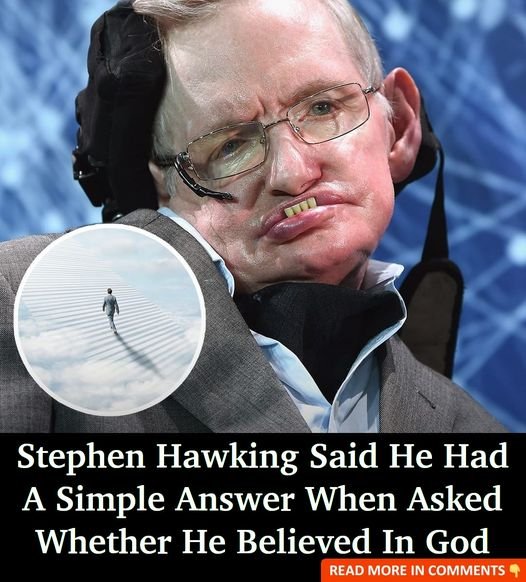
Before he died, Stephen Hawking talked about religion and the afterlife. People were understandably inquisitive about his thoughts on God and the afterlife, since he was a brilliant theoretical physicist. He shared his thoughts on the nature of life after death and the existence of a higher power in a number of interviews and writings.

The Belief Question
When asked if he believed in God, Hawking gave a direct response. He stated that the rules of science could explain the universe and that there was no proof of a higher power. “It is natural to believe that God created the universe before we understand science,” he said in an interview with the Spanish newspaper El Mundo. However, science now provides a more compelling answer. His position was not directed toward any one religion; rather, he believed that all faiths are founded on faith and lack empirical evidence. In essence, Hawking declared himself to be an atheist.
The Master Plan
Co-author of “The Grand Design,” together with Leonard Mlodinow, Hawking expanded on his theories regarding the universe’s beginnings in this book. He maintained that the universe was created by the principles of physics, not by a supernatural being. He wrote, “The universe can and will create itself from nothing because there are laws like gravity.” The universe and humans both exist because of spontaneous creation, which is the reason why there is something rather than nothing.
No Hereafter
Hawking also used scientific reasoning to support his beliefs about the afterlife. The idea of an afterlife, in his opinion, was just wishful thinking. “No one created the universe and no one directs our fate,” he wrote in his last book, “Brief Answers to the Big Questions.” This brings me to a sobering realization: it’s likely that neither Heaven nor the afterlife exist. I consider the idea of a hereafter to be mere wishful thinking. It defies everything we know about science and is not supported by any trustworthy data. However, he also recognized that each person’s beliefs are unique. He said, “I think the simplest explanation is there is no God, but we are all free to believe what we want.”
In summary
Stephen Hawking’s dedication to using science to explain the cosmos and his job as a mathematician influenced his beliefs about God, religion, and the afterlife. Even while his opinions might not coincide with those of others, his outstanding contributions to science will live on in memory and inspire future generations.
Share on Facebook.


